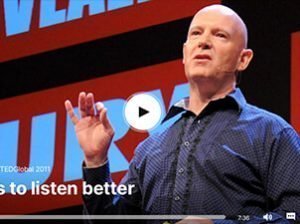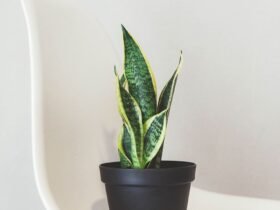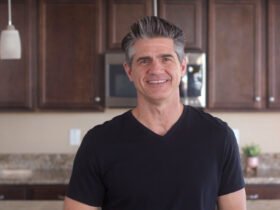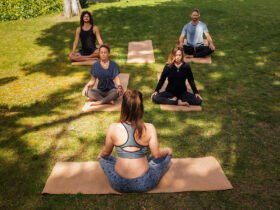Julian Treasure is an expert on sound and active listening. In this TED talk, he cites that although we spend about 60 percent of our time communicating in listening mode, we only retain 25 percent of what we hear. And as a society, we are just getting worse and worse at the craft of listening.
Yet the simple act of listening – real, active listening without judgment or advice-giving – can be life changing. It’s a portal to learn, understand, grow, and connect with one another. A way to show someone you care about them and want to hear what they have to say.
The difficult reality is that when most people listen, their mind is elsewhere – either waiting for the other person to finish speaking or preparing what it is they are going to say next. They aren’t actually present and tuned into the words or message of the speaker. And so often, we think people expect us to solve their problems when they come to us with a complaint or challenge, when really the most effective move we can make is simply to hold space for the other person to process their challenge.
Being able to actively listen — with openness and curiosity — can be the fastest path to resolve a challenge. And, the person you’re with feels supported and often learns more, because you’re empowering them to arrive at their own solutions rather than telling them what to do. This quote by Gabrielle Thompson, Senior Vice President at Cisco, sums up this sentiment well, “Many situations simply need an ear, not action. Oftentimes, problems don’t need solutions — they need presence and time.”
So how do you listen in a different way? A way that shows presence, care, and connection? Julian Treasure offers five tips.
Sound Expert, Julian Treasure’s 5 Simple Exercises to Improve Your Conscious Listening:
- Silence for 3 minutes a day: This resets your ears.
- “The Mixer”: Even if you’re in a noisy environment – whether a crowded room or out in nature – listen to how many individual channels you hear; this will improve the quality of your listening.
- Savoring: Spend time enjoying mundane sounds, like a clothes dryer, lawnmower, coffee grinder, or airplane overhead. Pay attention to the undertones and subtle qualities of everyday noises.
- Listening Positions. Apply various filters to your listening – like active, passive, reductive, expansive, critical, empathetic – depending on the situation.
- Follow the acronym, RASA:
- Receive: Pay attention to the speaker
- Appreciate: Making small noises like “mmm” to show you are listening
- Summarize: Reflect back what you heard
- Ask: Ask questions and be curious after they finish speaking
The next time you notice your mind wandering to another place or notice an urge to want to chime in when another person is speaking, check yourself and bring your attention back to the simple act of mindful listening.
Watch the TED Talk, 5 Ways to Listen Better, for more from Julian Treasure and his wisdom:
















Leave a Reply